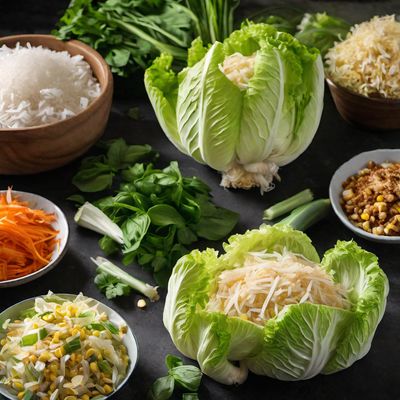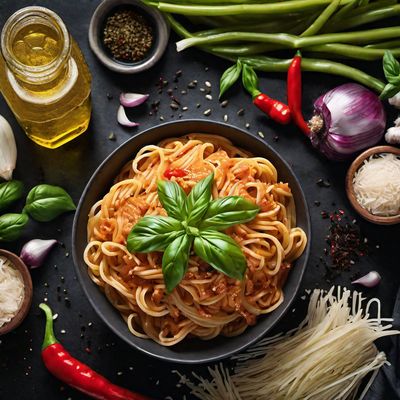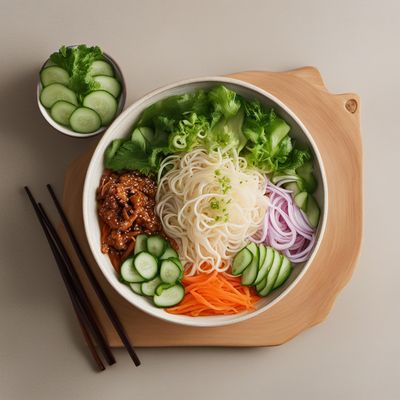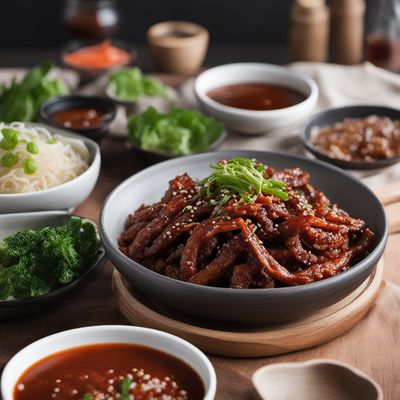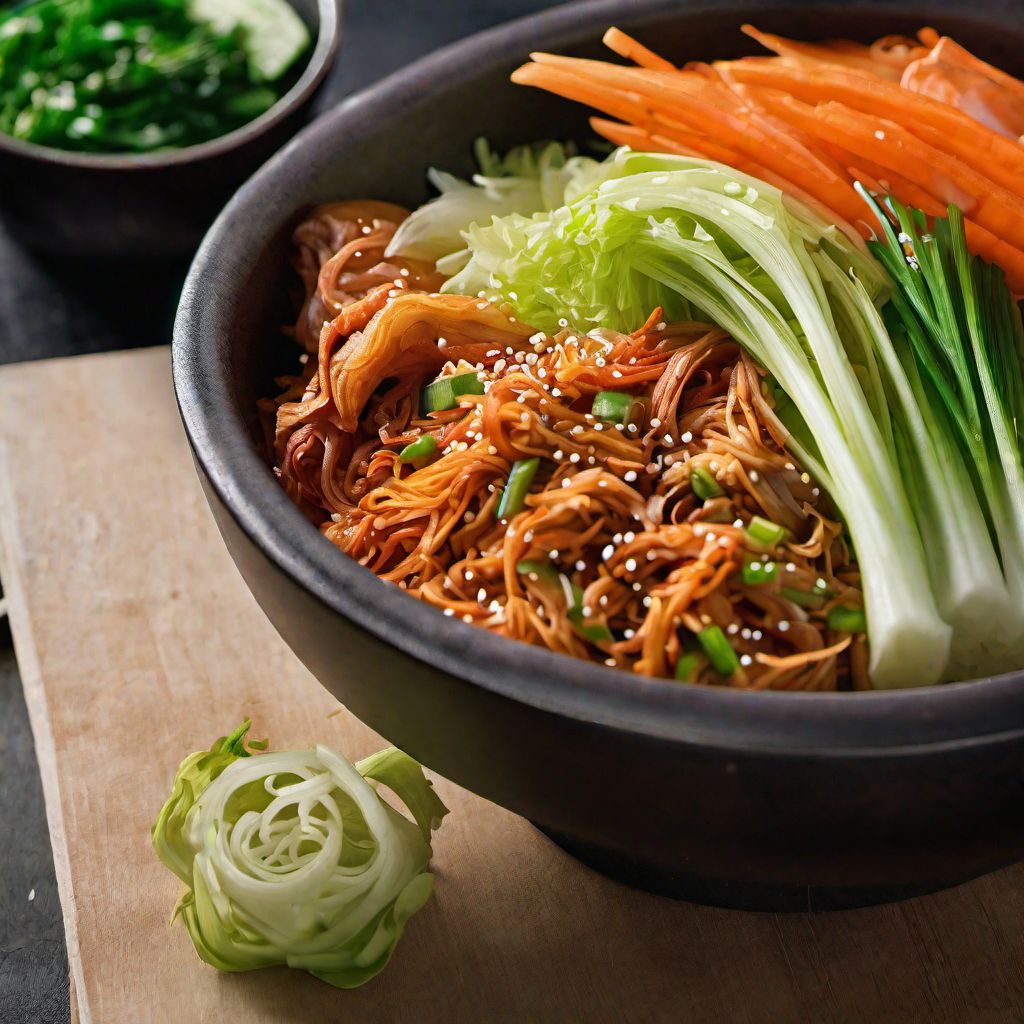
Recipe
Kimchi Recipe
Spicy and Tangy Homemade Kimchi
4.9 out of 5
Kimchi is a staple in Korean cuisine, known for its bold flavors and health benefits. This traditional fermented side dish is a perfect addition to any Korean meal. In this recipe, we will show you how to make your own delicious and authentic kimchi at home, adapted to the Korean cuisine.
Metadata
Preparation time
30 minutes
Cooking time
0 minutes (fermentation time: 1-2 days)
Total time
1-2 days (including fermentation and refrigeration)
Yields
4 servings
Preparation difficulty
Easy
Suitable for
Vegetarian, Vegan, Gluten-free, Dairy-free, Low calorie
Allergens
Fish (fish sauce)
Not suitable for
Nut-free, Soy-free, Paleo, Keto, Low-carb
Ingredients
-
1 medium Napa cabbage (about 2 pounds / 900g) 1 medium Napa cabbage (about 2 pounds / 900g)
-
1/4 cup (60ml) sea salt 1/4 cup (60ml) sea salt
-
3 tablespoons Korean red pepper flakes (gochugaru) 3 tablespoons Korean red pepper flakes (gochugaru)
-
1 tablespoon fish sauce 1 tablespoon fish sauce
-
1 tablespoon minced garlic 1 tablespoon minced garlic
-
1 tablespoon minced ginger 1 tablespoon minced ginger
-
1 tablespoon sugar 1 tablespoon sugar
-
4 green onions, chopped 4 green onions, chopped
-
1 small carrot, julienned 1 small carrot, julienned
-
1 radish, julienned 1 radish, julienned
Nutrition
- Calories (kcal / KJ): 50 kcal / 209 KJ
- Fat: 0.5g / 0.2g (total / saturated)
- Carbohydrates: 11g / 2g (total / sugars)
- Protein: 2g
- Fiber: 3g
- Salt: 2g
Preparation
-
1.Cut the Napa cabbage into quarters lengthwise. Remove the core and chop the cabbage into bite-sized pieces.
-
2.Place the chopped cabbage in a large bowl and sprinkle with sea salt. Mix well, ensuring all the cabbage is coated. Let it sit for 1 hour, tossing occasionally.
-
3.Rinse the cabbage under cold water to remove excess salt. Drain well and set aside.
-
4.In a separate bowl, combine the Korean red pepper flakes, fish sauce, minced garlic, minced ginger, and sugar. Mix well to form a paste.
-
5.Add the green onions, carrot, and radish to the paste. Mix until all the vegetables are coated.
-
6.Gently combine the vegetable mixture with the cabbage, ensuring all the cabbage is coated with the paste.
-
7.Transfer the kimchi to a clean glass jar, pressing it down firmly to remove any air bubbles. Leave about 1 inch (2.5cm) of space at the top.
-
8.Cover the jar loosely with a lid and let it ferment at room temperature for 1-2 days. Then, refrigerate for an additional 3-5 days to enhance the flavors.
-
9.Once fermented, your homemade kimchi is ready to be enjoyed!
Treat your ingredients with care...
- Napa cabbage — Make sure to remove the tough outer leaves before chopping.
- Korean red pepper flakes (gochugaru) — Adjust the amount according to your spice preference.
- Fish sauce — If you prefer a vegetarian or vegan version, you can substitute it with soy sauce or tamari.
Tips & Tricks
- Use gloves when mixing the red pepper flakes to avoid irritation.
- Fermentation time can vary depending on the temperature. Taste the kimchi after 1 day and continue fermenting if desired sourness is not achieved.
- Store kimchi in the refrigerator to slow down the fermentation process and prolong its shelf life.
Serving advice
Serve kimchi as a side dish with rice, noodles, or as a topping for Korean dishes like bibimbap or kimchi fried rice.
Presentation advice
Transfer the kimchi to a serving bowl and garnish with sesame seeds and sliced green onions for an attractive presentation.
More recipes...
For Kimchi » Browse all
For Korean cuisine » Browse all
More Korean cuisine dishes » Browse all

Pajeon
Pajeon is a Korean pancake that is made with scallions and seafood. It is a popular dish in Korea and is often served as an appetizer or snack.

Chonggak kimchi
Chonggak kimchi is a traditional Korean side dish made with young radishes. It is a spicy and sour dish that is often served with rice and other...

Jumulleok
Jumulleok is a traditional Korean dish that is made with marinated beef that is grilled on skewers. The beef is typically marinated in a mixture...
